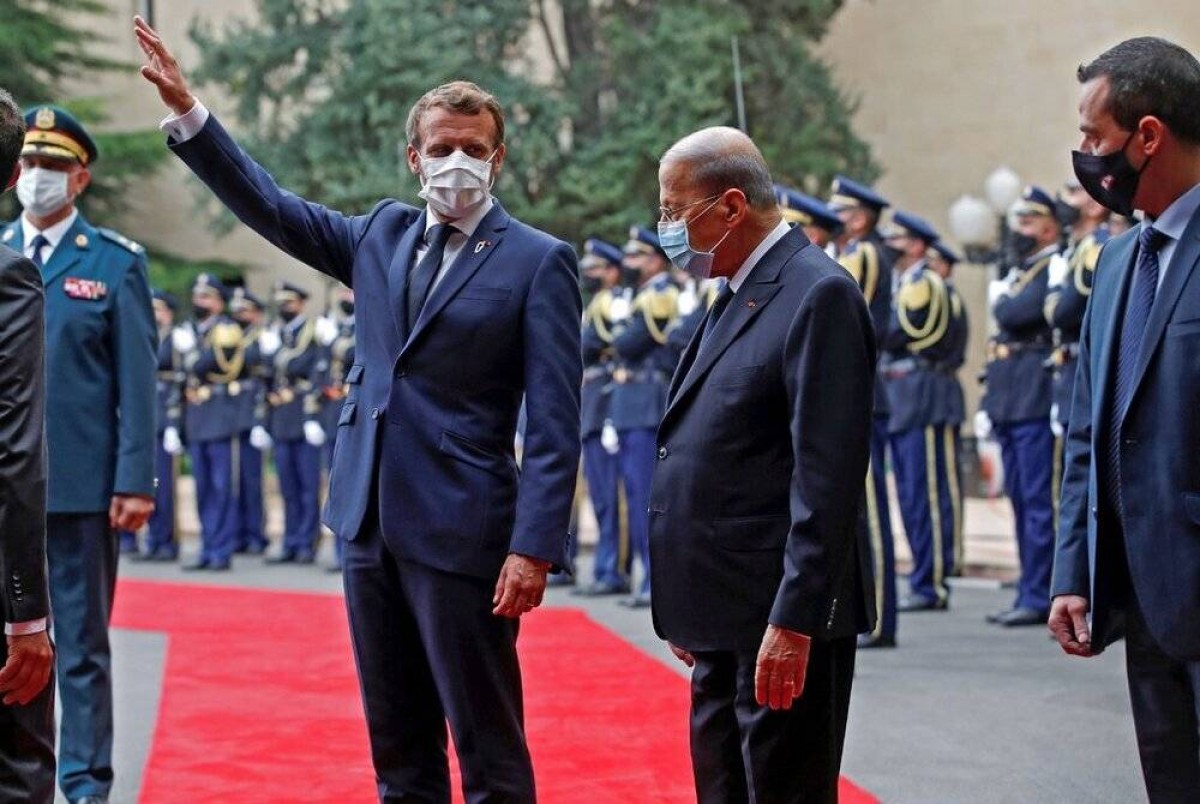 160
160
Considering France's colonial history in Lebanon as well as its broader geostrategic interests, the Élysée Palace has always strived to exert as much influence as possible on political events in Lebanon. To put it in other words, Paris makes various efforts to maximise the gains of Lebanon's economic turmoil, and the fragile political climate in this small Middle Eastern nation.
Behind the scenes of Macron’s political reform plan in Lebanon
Macron intends to take advantage of the absence of his two traditional allies, the United Kingdom and the United States, as well as their preoccupation with domestic issues, to establish a new role in West Asia by forming an Arab axis similar to the European Union to confront Turkey, particularly in the Eastern Mediterranean, and Libya. This new policy of Paris was brought to light when French President Macron travelled to Lebanon a day after the Beirut explosion to play the role of a supporter of Lebanon. In Beirut, he declared solidarity with the Lebanese and said that aid would be available to the people and not corrupt officials, and that a free Lebanon would emerge again from the ashes.
Shedding crocodile tears for the Lebanese, Macron added: “Lebanon needs change and a new political structure, and Paris will provide Lebanon with food supplies, housing restorations, and medical aid.” The President of France stated: “Today a new political initiative will begin, and the reign of the corrupt has ended.” “This explosion marks the beginning of a new age based on reforms, altering the [political] system, and the elimination of divisions.” Macron added that international aid must be under the charge of the United Nations and be directly provided to citizens and NGOs. It was with these words that Macron ushered in a new phase of France’s interventionist policy towards Lebanon, and then on the 27th of August 2020, the news agency Reuters wrote in an exclusive report, citing a Lebanese political source, that France has a strategy allegedly to carry out economic reforms and rescue Lebanon from its current turmoil.
Marginalising Lebanon’s Hezbollah
The explosion in Beirut’s harbour provided a golden opportunity to gain ground against the Resistance Axis, particularly Hezbollah in Lebanon.
In this scenario, France viciously attempts to portray Hezbollah as a menace to Lebanon’s stability and an impediment to addressing the country’s economic woes. In fact, Paris is trying to install a new political system in Lebanon that would safeguard the interests of the United States, the Zionist regime, and the reactionary Arab monarchies, while hostile to the Axis of Resistance and Hezbollah.
The failure of Macron’s policies and the persistence of the crisis in Lebanon
Following the blast at Beirut’s port, Macron outlined measures designed to boost France’s political clout in Lebanon. However, it has been nearly two months since Michel Aoun’s tenure as president of Lebanon concluded, yet the political landscape in Lebanon remains unfavourable as the nation’s leaders have not yet chosen a successor. At this stage, Paris has other international and regional cases that it deems more vital than the one in Lebanon. Consequently, the current situation in the Lebanese presidential case will likely stay unchanged for the time being.
Comment
Post a comment for this article